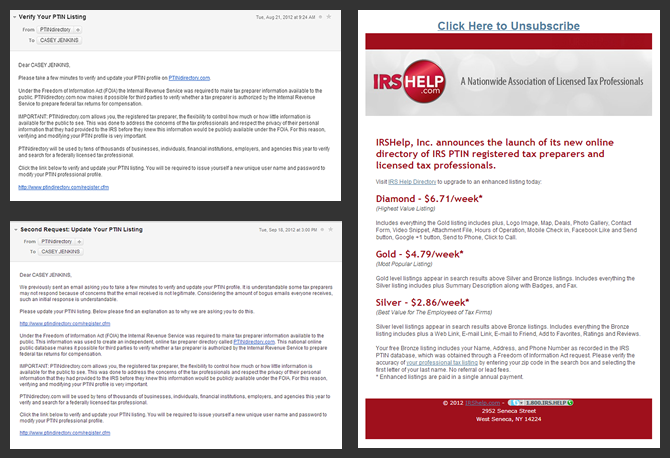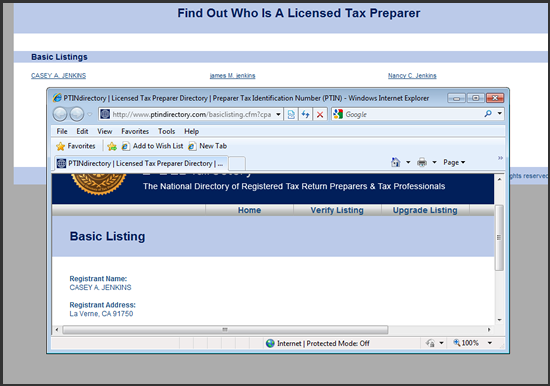Several of my paid preparers have been calling me recently about this email and others like it:

If you’re asking what this is about – you’re asking the right question! I’ve contacted the PTIN Directory’s own Michael Rosedale, the IRS, and Uncle Google for some research of my own and here’s what I’ve found.
What is a PTIN Registry?
A PTIN Registry is a privately owned service. The general idea is that the public should have the right to check who is an IRS Approved Tax Preparer. These registries are places for taxpayers to do just that.
However, as the owner of the PTIN you also have rights. You should check these websites for your listing and see what information they have. The actual PTIN should not be on line, and you should never publicly post your PTIN. The next question is, do you want the information the PTIN Directory already has to be public or private?
Control your profile
The only way to figure out what information a registry lists about your business is to check. I visited one site, and searched on my last name, state and zip code, and found all three members of our family company.

Update your PTIN profile
According to Rosedale you have control over this information. You can turn it off so that nothing shows up, or you can kick it up a notch by upgrading to a “featured listing” category.
For a fee, you can update your listing, get a gold seal for your website, and improve the website search feature to make it easier for perspective customers to find you.
What should you do?
What you do with this service is up to you. You may choose to register with this company, or you may choose not to. The IRS currently hosts an ERO Directly that may meet your needs. It’s owned by the IRS, and is free.
Some Words of Warning
As with all tax ID numbers, there is always a risk of identity fraud or theft. So here are some tips to protect your PTIN:
- NEVER give someone you don’t know your PTIN.
- If it looks suspicious, it probably is. It’s best to take a step back, make a phone call, and be sure you understand before you proceed.
- The only place you need to put your PTIN is on a federal tax return. If you are being asked for your PTIN in some other context – STOP. Dig deeper before you release this information.
And as always – reach out and contact us here at 2290Tax.com with questions and concerns. I’ve spoken to the IRS about this personally, and I’m happy to share the knowledge, or do some research on your behalf.
